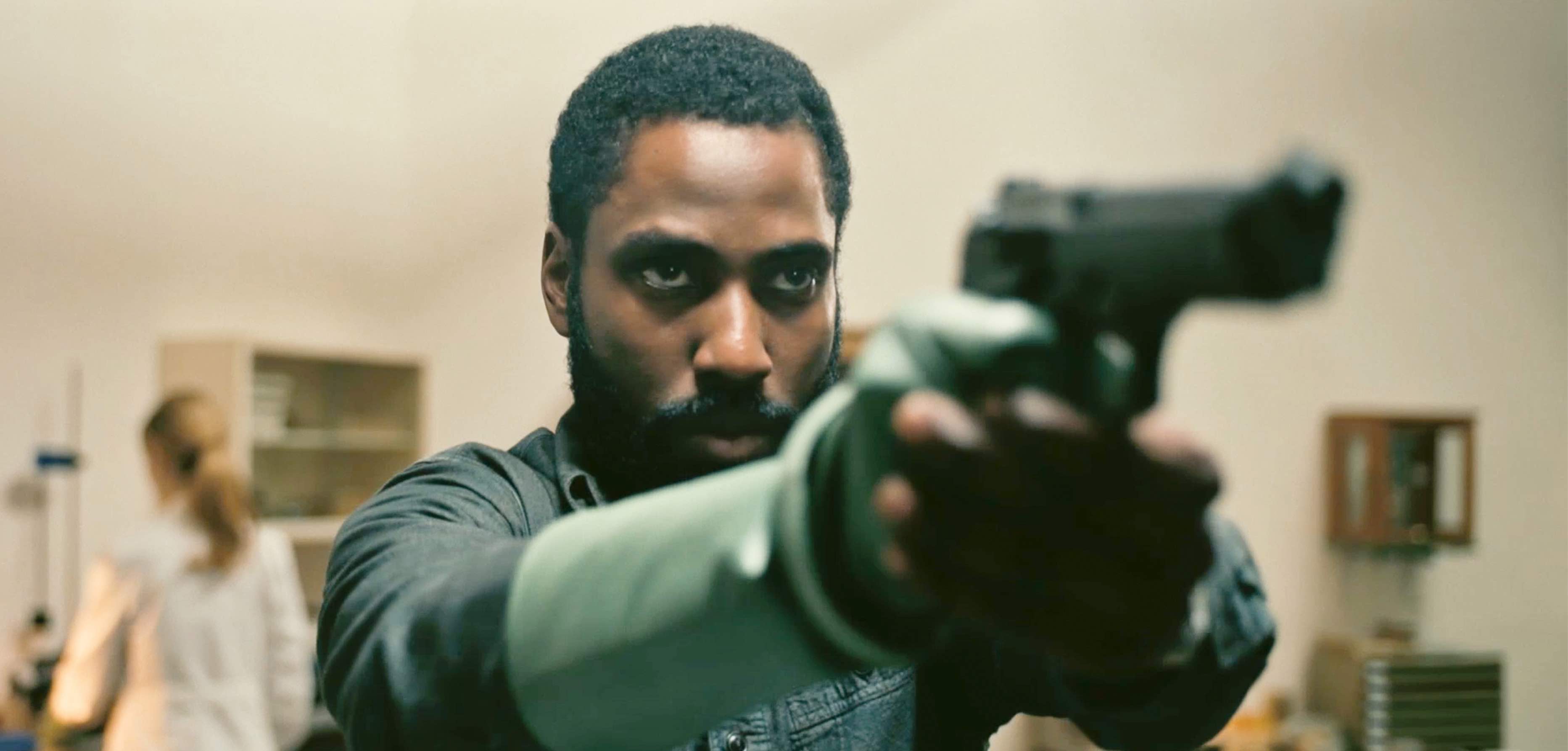Leave it to Christopher Nolan to galvanize moviegoers into returning to multiplexes after months of living-room movie nights—only this time, at a limited capacity, donning masks and safely distancing from one another. Released in Canada on Aug. 26, Tenet has been tasked with the responsibility of carrying an ailing theatre industry on its back. Despite all the hype building up to Tenet’s release, the thriller punches below its weight. However, it is neither the technical nor the conceptual elements that hold the blockbuster back; rather, Tenet’s ultimate disappointment is its emotional elusiveness.
Without delving into the specifics of the film’s intricate plot, Tenet follows a CIA operative, known only as The Protagonist (John David Washington—in a confident and cool performance), who works for a clandestine international organization called Tenet. The palindromic name underscores the film’s theme of reversal. His mission is to prevent Russian oligarch Andrei Sator (Kenneth Branagh) from raining destruction on the world with a device called The Algorithm. In doing so, the Protagonist acquaints himself with “inversion,” a process by which the entropy of both people and of objects can be reversed, resulting in the appearance of time running backwards.
“Don’t try to understand it. Feel it,” a scientist (Clémence Poésy) advises The Protagonist early in the thriller. This is sound advice for viewers trying to work out its dizzying plot. Between the time-inversion and paradoxes, Tenet emerges as a visually arresting, but a rationally inaccessible spectacle. By the time the audience figures out what is going on, another logical knot pops up, and the cycle restarts. Worse still, Richard King’s grinding sound design often overpowers the film’s expository dialogue, adding another unwelcome chore in addition to understanding the already confusing plot.
What is most disappointing about the film is that it may signal the end of an era, a drifting-away from Nolan’s earlier films and the pathos that made them so enjoyable. Indeed, Nolan’s best films can each be stripped down to their rich emotional core: 2010’s Inception portrayed a father’s resolve to reunite with his children; 2006’s The Prestige examined the cost of obsession; 2000’s Memento depicted an amnesiac’s relentless pursuit of vengeance. These heart-wrenching films highlight just how unfeeling Tenet is in comparison.
The sole emotional resonance of the film is conveyed through Kat (Elizabeth Debicki), a mother trapped in an abusive relationship, who wants nothing more than to rescue her son from the onslaught of nuclear war. But this plot line remains underdeveloped, and Tenet withholds the brutal emotional arc that makes viewing Nolan films worth all of their brain-racking.
However, what the film lacks in heart, it makes up for in technique. The sheer massiveness of Tenet strikes the viewer every step of the way, from the terrorist siege of a grand Kievan opera house to the hijacked jumbo jet crash. The film is packed with exciting action sequences, including a kitchen fight that features a well-placed cheese grater, and a reverse highway chase sure to keep viewers on edge. Hoyte van Hoytema’s dazzling widescreen cinematography and Ludwig Goransson’s score, which harbours a reversed quality paralleling the film’s plot, are what make Tenet worth the watch.
Tenet gets lost in its own labyrinthine plot, sacrificing its emotional core in the process. The blockbuster is visually and technically striking, plunging its viewers into the world of quantum physics, paradoxes, and parallel realities. But this only eclipses the humanity of the film—and ultimately, Tenet offers little more than a hollow spectacle.









Very good review. Warns the viewers what to expect, and not expect.
Well done.